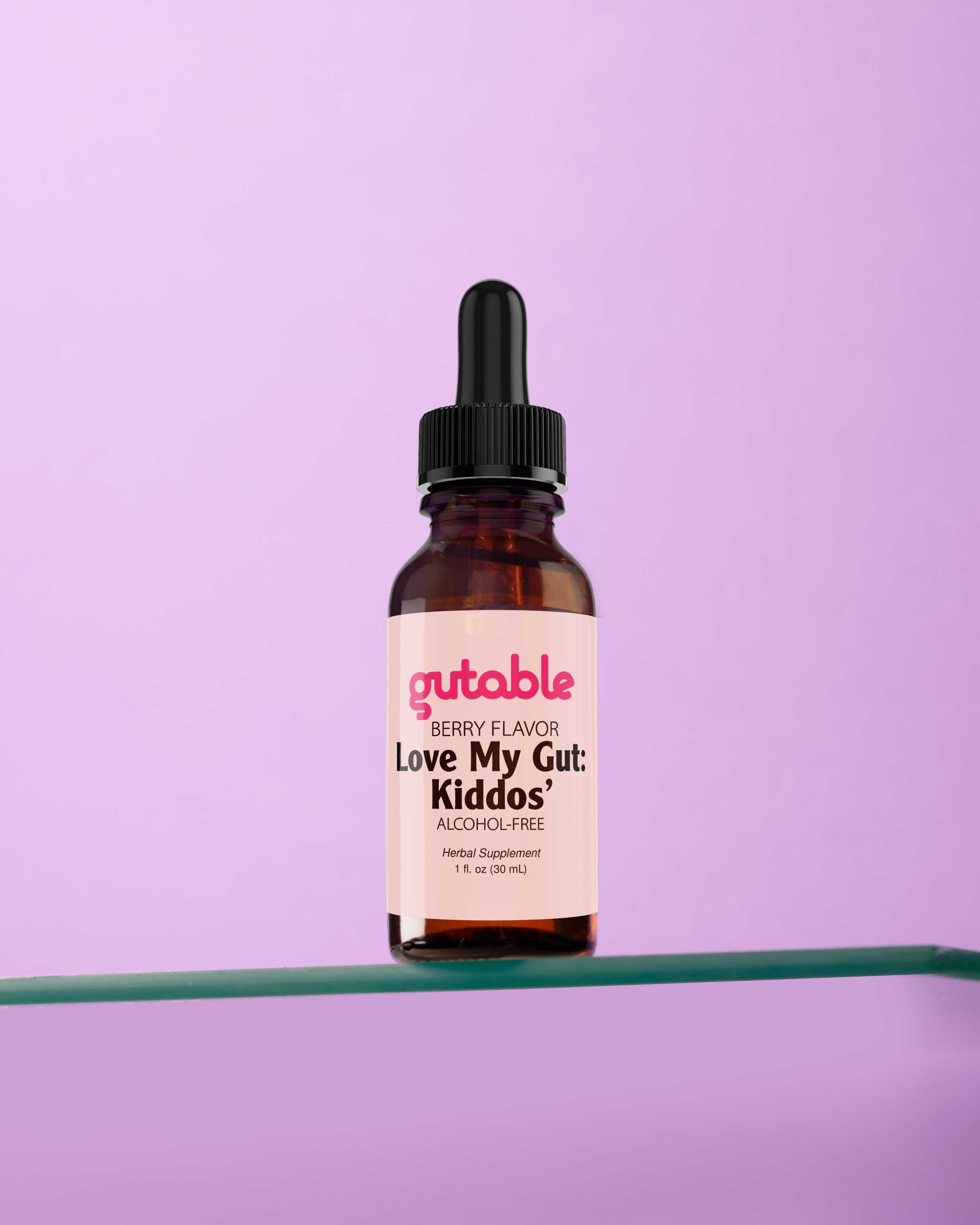There's an apparent connection between sugar and gut health, but, while most of us are aware of the impact of sugar on our waistlines and overall well-being, its effects on the delicate balance of our gut microbiome are often overlooked.
In this article, we will dive deep into the relationship between sugar consumption and gut health, exploring how excessive sugar intake can disrupt the harmony of our digestive system and potentially lead to various health issues.
Key Takeaways:
- Excessive sugar consumption can disrupt the balance of bacteria, yeast, and other microorganisms in the gut.
- Sugar promotes the growth of harmful bacteria while disturbing the balance of beneficial bacteria, leading to gut dysbiosis.
- Consuming excess sugar can hinder the growth and effectiveness of beneficial gut bacteria, undermining the benefits of probiotics.
- A diet high in sugar can contribute to candida overgrowth, resulting in various health problems.
- Sugar consumption can weaken the gut lining, contributing to leaky gut syndrome and potential inflammation.
The Relationship Between Sugar and the Gut
When it comes to our digestive system, the impact of sugar consumption goes beyond simply satisfying our sweet tooth. Excessive sugar intake can disrupt the delicate balance of bacteria, yeast, and other microorganisms that make up our gut microbiota, resulting in potential health issues.

The gut is home to trillions of microorganisms that play a crucial role in maintaining our overall well-being. This complex ecosystem, known as the gut microbiome, relies on a delicate balance to function optimally. Unfortunately, the overconsumption of sugar can throw this balance off.
Sugar acts as a source of fuel for harmful bacteria and yeasts in the gut, promoting their growth and potentially leading to an overgrowth. This imbalance in gut flora, known as dysbiosis, can have wide-ranging effects on our health, including digestive issues, immune system dysfunction, and even mental health concerns.
Furthermore, excessive sugar intake can hinder the growth and effectiveness of beneficial gut bacteria, which are vital for proper digestion, nutrient absorption, and overall gut health. This disruption can compromise the function of the gut, potentially leading to symptoms like bloating, gas, and discomfort.
The Role of Sugar in Gut Inflammation
Not only does sugar impact the balance of gut bacteria, but it can also contribute to gut inflammation. Research suggests that high sugar consumption triggers an immune response in the gut, leading to inflammation and increased intestinal permeability, or "leaky gut."
Leaky gut occurs when the lining of the intestinal wall becomes compromised, allowing harmful bacteria and toxins to seep into the bloodstream. This can trigger an inflammatory response throughout the body and potentially contribute to the development of various chronic conditions.
It's important to note that the relationship between sugar and gut health is complex and multifaceted. Factors such as overall diet, lifestyle, and individual susceptibility all play a role in determining the impact of sugar on gut health.
Understanding the relationship between sugar and the gut is crucial for making informed dietary choices and prioritizing gut health. In the next section, we will explore the specific impact of sugar on the gut biome, shedding light on the mechanisms through which sugar can disrupt the delicate balance of our digestive system.
The Impact of Sugar on Gut Biome
In this section, we will explore the specific impact of sugar on the gut biome, focusing on how sugar consumption can disrupt the delicate balance of bacteria and microorganisms in the digestive system.
Sugar's effect on the gut biome is far-reaching. When we consume excess sugar, it acts as fuel for harmful bacteria, allowing them to multiply and thrive in our gut. This overgrowth of harmful bacteria can lead to an imbalance in the gut biome, commonly known as gut dysbiosis.
Furthermore, sugar consumption can also disrupt the balance of beneficial bacteria in the gut. These beneficial bacteria play an important role in maintaining a healthy gut and supporting overall digestive health.
The Role of Sugar in Gut Dysbiosis
Gut dysbiosis caused by excessive sugar consumption can have significant consequences for our health.
It can weaken the immune system, reduce nutrient absorption, and contribute to various digestive issues such as bloating, gas, and irregular bowel movements.
Moreover, an imbalanced gut biome due to sugar can also affect our mood, energy levels, and overall well-being. Research suggests that disruptions in the gut microbiota could potentially contribute to mental health conditions like depression and anxiety.
Note that sugar's impact on the gut biome is not limited to processed sugars found in candies and desserts. Even hidden sources of sugar, such as sugary beverages, processed foods, and certain sauces, can have a similar effect on the gut.
To support a healthy gut biome, it is advisable to limit the intake of added sugars and opt for a balanced diet rich in fiber, whole foods, and probiotic-rich foods. This can help promote a diverse and resilient gut microbiome, enhancing overall digestive health.

Sugar, Probiotics, and Gut Health
When it comes to maintaining a healthy gut, one notable factor to consider is the relationship between sugar consumption and probiotics. Sugar, particularly in excessive amounts, can have adverse effects on the growth and effectiveness of beneficial gut bacteria, potentially undermining the advantages of probiotic supplementation.
Probiotics are living microorganisms that, when ingested, confer health benefits, particularly to the digestive system. These beneficial bacteria help maintain a balanced gut microbiota, support digestion, and enhance the body's overall immune function.
However, excessive sugar intake can disrupt the delicate balance of gut bacteria. As mentioned, sugar serves as a fuel source for harmful bacteria, allowing them to thrive and outcompete the beneficial ones. This can lead to a decline in the diversity and abundance of beneficial gut bacteria, compromising the overall health of the gut microbiome.
Sugar consumption can contribute to inflammation in the gut, which further hampers the growth and effectiveness of probiotics. Inflamed gut tissues create an unfavorable environment for the survival and colonization of beneficial bacteria, making it difficult for probiotics to establish and maintain themselves in the digestive tract.
Reducing Sugar Intake
To optimize the benefits of probiotics and support gut health, pay attention to sugar consumption. Minimizing the intake of added sugars, such as refined sugars, sugary drinks, and processed foods, can help create an environment conducive to the growth and flourishing of beneficial gut bacteria.
Replacing sugary foods with nutrient-dense options, such as fruits, vegetables, whole grains, and lean proteins, can provide the body with essential nutrients while reducing the harmful effects of excessive sugar on the gut.
Additionally, incorporating prebiotic-rich foods into your diet can further support the growth of beneficial gut bacteria. Prebiotics are non-digestible fibers that serve as food for probiotics, helping them thrive and multiply. Foods rich in prebiotics include garlic, onions, leeks, asparagus, bananas, and oats.
By reducing sugar intake, incorporating probiotic-rich foods or supplements, and providing a nourishing environment for beneficial gut bacteria, you can support a healthy gut and optimize the benefits of probiotics in maintaining overall well-being.

Sugar, Candida, and Gut Health
Sugar can fuel candida yeast, allowing it to multiply and potentially disrupt the balance of beneficial bacteria in the gut. When candida overgrowth occurs, it can lead to a condition known as candidiasis, which can manifest as oral thrush, vaginal yeast infections, and digestive problems, among other symptoms.
Candida yeast feeds on sugar. The overgrowth of candida can weaken the immune system, compromise nutrient absorption, and trigger inflammation in the gut.
While everyone has candida yeast in their bodies, it typically exists in small quantities and is kept in check by the immune system and the balance of beneficial gut bacteria.
However, when there is an overabundance of sugar in the diet, it can disrupt this delicate balance and contribute to candida overgrowth.
Reducing sugar intake and adopting a balanced diet can help control candida overgrowth and promote gut health. Incorporating probiotic-rich foods and avoiding processed sugars can support a healthy gut flora, reducing the chances of candida yeast taking over.
Sugar, Bacteria, and Leaky Gut Syndrome
When it comes to gut health, the impact of sugar goes beyond just disrupting the delicate balance of bacteria. Excessive sugar consumption can weaken the gut lining, leading to a condition known as leaky gut syndrome.
Leaky gut syndrome occurs when the tight junctions between the cells lining the intestinal wall become compromised, making them more permeable to bacteria and toxins. This allows harmful substances to pass through the gut barrier and enter the bloodstream, triggering an immune response and potentially leading to inflammation and various gut-related health problems.
Furthermore, the presence of sugar in the gut provides an ideal environment for the growth of harmful bacteria. These bacteria can further contribute to gut dysbiosis, disrupting the balance of beneficial microorganisms and exacerbating the permeability of the gut lining.
Main Takeaways: How Sugar Impacts Gut Health and Beyond
The intricate relationship between sugar consumption and gut health cannot be overstated. Throughout this article, we've uncovered the profound impact of excessive sugar intake on the delicate balance of our gut microbiome and overall digestive well-being.
From promoting the growth of harmful bacteria to contributing to gut dysbiosis and inflammation, sugar can wreak havoc on our digestive system if consumed in excess.
Moreover, its detrimental effects extend beyond just disrupting the gut biome; sugar consumption can also weaken the gut lining, leading to leaky gut syndrome and potential inflammation throughout the body.
Armed with knowledge about the detrimental effects of sugar on gut health, we can take proactive steps to support our digestive well-being. By reducing sugar intake, opting for nutrient-dense whole foods, and incorporating probiotic-rich options into our diet, we can create an environment conducive to a thriving gut microbiome.
Ultimately, understanding the intricate interplay between sugar and gut health empowers us to make informed dietary choices that prioritize our long-term well-being. Let's embark on a journey towards gut health optimization, one mindful choice at a time.

































